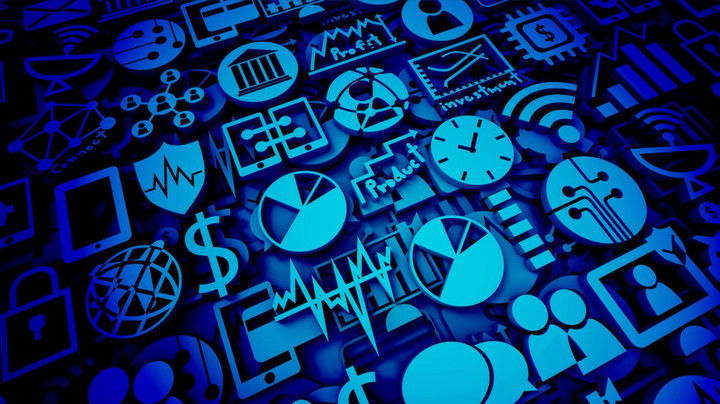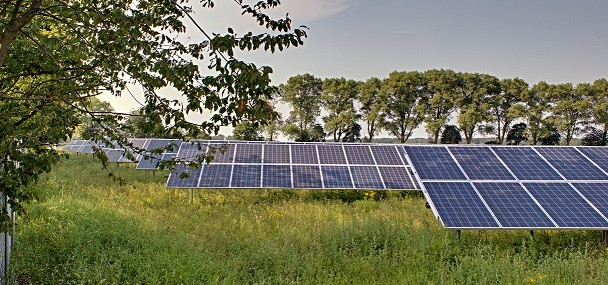Blockchain & IoT: Blockchain’s Most Exciting Prospects Have Nothing To Do With Money
The most prominent example of what blockchain can do are currencies such as bitcoin. It is, arguably, also the most boring example — not because blockchain is boring, which it isn’t, but because money is boring. As Mathias Röckel explains, the more exciting prospects have to do with traditional industries – and the creation of new business models.

© JIRAROJ PRADITCHAROENKUL | iStockphoto
Money has no intrinsic value. The only reason we like money is it lets us do a whole lot of things that have nothing to do with money. Granted, as a medium of exchange, money is a clever idea that has managed to stay alive since the introduction of the shekel in Mesopotamia. But while disrupting an industry that has been around for 5,000 years is surely thrilling, it is nothing more than replacing a clever medium of exchange with a very clever medium of exchange.
There is so much more blockchain can do.
Many of the projects currently underway or most likely to succeed have to do with the main task we have been pursuing since the beginning of the industrialization: optimizing workflows, tightening the supply chain, automation. This is where highly integrated industries can optimize their production.
Better Control Of Supply Chains
BMW recently reminded us how crucial the modern production process is when the car maker had to halt a few of its assembly lines in China, South Africa, and Germany. The reason, a shortage of one part essential for the steering, was small. The consequences were big. Halting assembly lines is an expensive emergency. Who was to blame? BMW said the responsibility lay with its supplier Bosch, while Bosch passed the blame onto a sub-supplier in Italy.
“A missing part — even if only a small one, as in this case — can have a major impact,” said Markus Duesmann, BMW board member overseeing purchasing and supplies.
Digital Passports Containing Complete Provenance Details
According to IBM, one of the main advantages of blockchain technologies for industrial manufacturing is this: “When something goes wrong with a complex industrial system — such as an aircraft — it’s important to know the record of origin of each component part. Blockchain provides every physical product with a digital ‘passport’ containing complete provenance details of each component. This creates a transparent record for all parties, including government regulators.”
While there is no guarantee that the supply chain breakdown leading to the halt at BMW would not have occurred if IBM’s vision were already true, it does sound like the company would have to spend less time worrying about who to blame.
Creating New Business Cases
“In 2016, the global blockchain technology market is said to be worth approximately 210 million U.S. dollars and is expected to grow to $2.3 billion U.S. dollars by 2021,” says Statista. This market potential not only comes from re-inventing money or helping existing industries save money. Blockchain is also about creating value and creating new business cases. This is especially true in the field of smart contracting.
In early use cases, smart contracts will often be based on the idea of cutting out the middleman. Business transactions that have long required the help of a trusted third party will be challenged. There will be new ways to prove trustworthiness and, in the case of disputes, to revise transactions. Ownership will be easy to prove, even in the case of digital goods that we have become accustomed to copying so easily.

© jojoo64 | iStockphoto
In the long run, blockchain can help create value from resources that currently lay idle: Germany is working on its energy transition. The country wants to move away from fossil fuel and nuclear energy toward renewable energy. Among the challenges are energy peaks during sunny or windy hours – and the related lows. Blockchain technology can help stabilize the grid and earn owners of batteries an extra income.
Two companies, sonnen and TenneT have launched a pilot project integrating storage batteries into the power supply system via a blockchain solution. The solution intends to “reduce the need for emergency measures, such as the regulation of wind parks, when the grid experiences bottlenecks.” It also integrates residential batteries in the grid. “The blockchain presents the operator from TenneT with a view of the available pool of flexibility, ready to activate at the push of the button, after which the blockchain records the batteries' contribution.”
Get in touch with eco!
eco – Association of the Internet Industry has its own Competence Group Blockchain, led by Stephan Zimprich. Together with other industry experts, the group hosts different events on all topics related to the blockchain. Early 2018, eco will host the Blockchain Masters conference in Frankfurt. More details will be online on blockchain.eco.de in a few weeks.
A survey conducted by the Competence Group with the help of YouGov of blockchain in the German market found that 32 percent of managers in Germany believe “blockchain will fundamentally change the German economy within the next 10 years.”
The Competence Group is your first stop for learning more about how eco can help you identify the advantages of the blockchain. Get in touch!
Early in 2018, eco will host the Blockchain Masters conference in Frankfurt. More details will be online on blockchain.eco.de in a few weeks.


